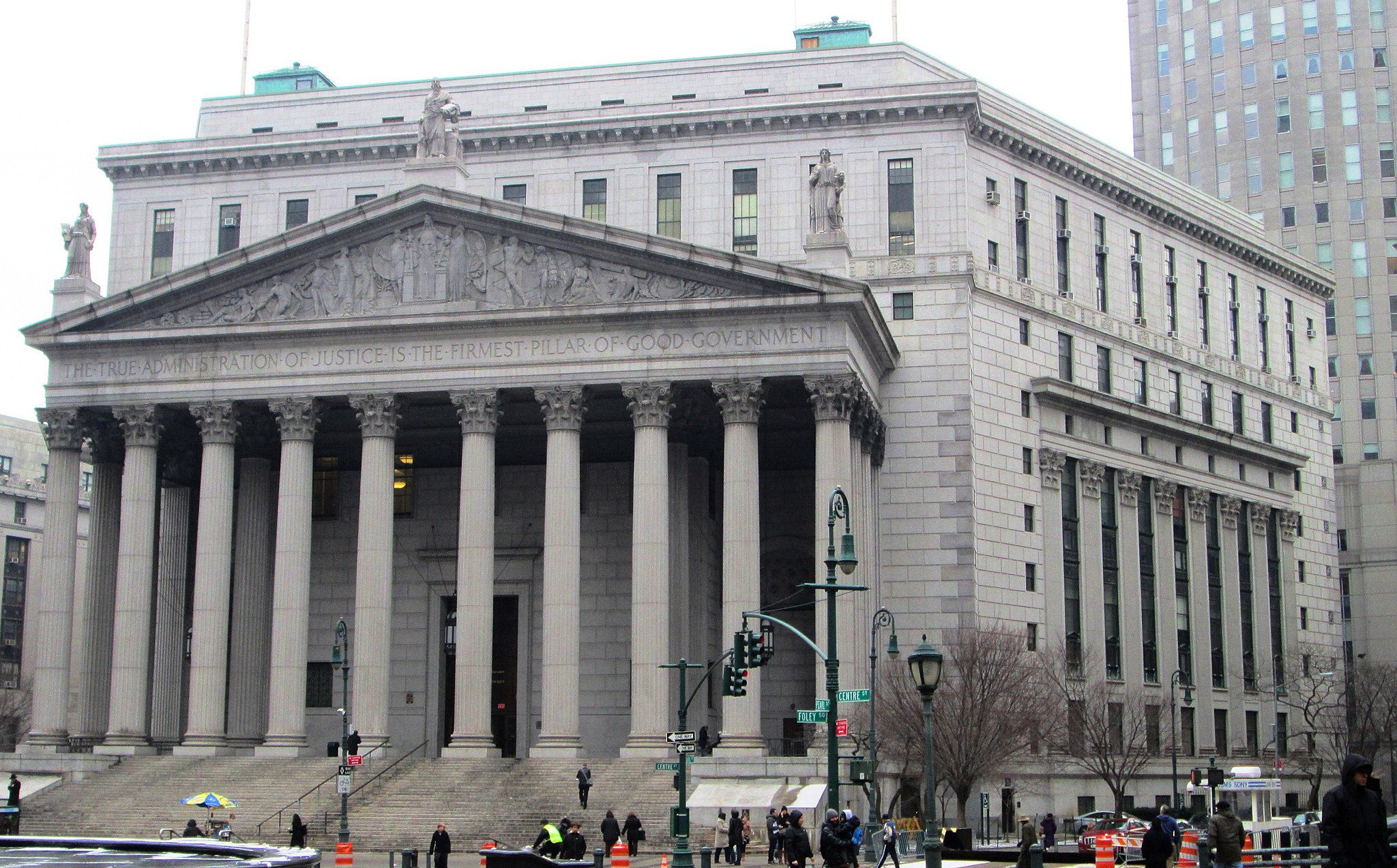Today's Headlines and Commentary
On Wednesday, House Democrats’ Congressional Task Force on Election Security released a report and corresponding legislation urging immediate action to safeguard the 2018 midterm elections from Russian interference, Politico reports.
Published by The Lawfare Institute
in Cooperation With

On Wednesday, House Democrats’ Congressional Task Force on Election Security released a report and corresponding legislation urging immediate action to safeguard the 2018 midterm elections from Russian interference, Politico reports. The report asks Congress to send $300 million to states now to improve their voting machines in an effort to prevent foreign meddling; it additionally requests Congress to send more money to states later on for “cybersecurity training, voter database security improvements and grants to ward off future threats.” The election security task force also introduced the Election Security Act. The act would increase funding for state and federal election security efforts.
Democratic Reps. Elijah Cummings, Jerrold Nadler and Ted Lieu will introduce a bill Wednesday that would expand congressional oversight of the executive branch’s security clearance process, Politico reports. The bill would require the White House to send Congress a list “of the name and position of each individual working in the [Executive Office of the President] who holds a security clearance of any kind” every three months. The bill also seeks to restrict the use of interim security clearances to a period of a year. To maintain an interim clearance beyond that point requires the White House counsel to justify the decision to Congress. The White House silently banned the granting of new interim security clearances for personnel in the Executive Office of the President last fall, Politico adds. The ban seems to indicate, if only tacitly, that officials in the White House personnel security office recognized the “potential pitfalls of overreliance on interim security clearances.”
Despite substantial cuts to foreign aid, the U.S. agreed on Wednesday to send Jordan a minimum of $1.275 billion annually for the next five years, the Washington Post reports. The agreement—formalized in a memorandum of understanding signed by Secretary of State Rex Tillerson and Jordanian Foreign Minister Ayman al-Safadi—replaced a previous three-year deal that promised Jordan $1 billion of foreign aid per year. Tillerson explained the breakdown of the aid package, saying that it will fund political and economic programs in the Hashemite kingdom aimed at ameliorating the adverse effects of regional crises, particularly the refugee crisis. The memorandum designates a minimum of $750 million annually for economic aid and $350 million annually for military aid. As the Post points out, these numbers are just a baseline and “in practice it can be much more.”
The U.S. and Britain disagree over what to do with two accused Islamic State foreign fighters captured by coalition-backed forces last month, the Post reports. Although the militants, Alexandra Kotey and El Shafee Elsheikh, grew up in Britain, British Defense Secretary Gavin Williamson said that the two men turned their back on the U.K. the moment they joined ISIS, and that they should “never set foot in the country again.” American diplomats and military officials have pushed the British government to accept the two fighters and bring them to court. Defense Secretary James Mattis urged the British to take responsibility for their citizens who fought for ISIS, saying flatly that “doing nothing is not an option.” Steve Goldstein, undersecretary of state for public diplomacy and public affairs, said that if the U.K. refuses to accept its nationals, the U.S. will consider placing them in Guantanamo Bay. FBI agents and Justice Department officials are preparing a case to bring Kotey and Elsheikh to the U.S. to stand trial in federal court, likely on accounts of “kidnapping, torturing, and killing American hostages.” Read Bobby Chesney’s case for the militants to be brought to the U.S. to stand trial.
The U.S. has indicated its intention to place Pakistan on a watch list with other countries failing to do enough to combat “terrorism financing and money laundering,” the New York Times reports. The U.S. will likely propose to return Pakistan to the watch list at the meeting of the Financial Action Task Force in Paris next week, where the body’s constituent members would vote on the motion. Pakistani officials worry that returning to the watch list will jeopardize the country’s ability to pay back its $3 billion debt, which deadline fast approaches. In order to remain off the watch list, the Pakistani government has imposed sanctions on two groups that the U.S. believes act as fronts for the militant organization Lashkar-e-Taiba. Civilians in Pakistan’s government privately welcomed the opportunity to crack down on the insurgent groups but voiced their concerns that the military and its corresponding intelligence agency will not follow suit.
Three men have been taken into custody after attempting to drive onto the NSA’s campus at Fort Meade, the Baltimore Sun reports. The men, driving an unauthorized black SUV, refused to stop, prompting law enforcement to fire on the incoming vehicle before it crashed into a concrete barrier. The incident left three people injured: an NSA officer, a bystander and the driver of the vehicle. The FBI agent in charge of the bureau’s review of the incident said that it was not connected to terrorism. The investigation into the incident and the trio’s motives is ongoing.
Israeli police recommended bringing bribery and corruption charges against Israeli Prime Minister Benjamin Netanyahu, the Wall Street Journal reports. Netanyahu is accused of accepting gifts and accepting favorable media coverage from Yedioth Ahronoth in exchange for limiting the influence of that outlet’s competitor, Israel Hayom. The attorney general, Avichai Mandelblit, and Israeli prosecutors must now decide whether to pursue charges. Netanyahu denies the recent allegations. Police have recommended charges against Netanyahu twice in the past, the Washington Post adds. Both times, prosecutors declined to indict.
Thomas Bossert, the American homeland security adviser, and Paddy McGuinness, the U.K. deputy national security adviser, argue for the Times in favor of the CLOUD Act, stating that the act’s passage is a priority for both the American and the British governments.
ICYMI: Yesterday on Lawfare
Asher Susser argued that the Israeli-Palestinian conflict is often explained using a selective history of events and facts.
J. Dana Stuster posted this week’s Middle East Ticker, covering Israeli airstrikes in Syria, the attack on U.S. troops by Syrian regime forces, Egypt’s new counterterrorism offensive, and Iraq’s push to raise funds to rebuild the country.
Coleman Saunders summarized the new developments in the al-Iraqi trial at the military commissions, covering the proceedings from Jan. 30 to Feb. 4.
Evelyn Douek summarized last week’s hearings on fake news, during which members of the U.K. Parliament grilled representatives from Facebook, Google, Twitter and YouTube.
Matthew Kahn posted the Lawfare Podcast, a recording of Chuck Rosenberg’s talk to a group of University of Virginia law students about value-based leadership.
Stewart Baker shared the Cyberlaw Podcast, which consisted of a news roundup.
I shared the live streams of and prepared testimony from the Senate intelligence committee hearing on worldwide threats and the Senate Armed Services Subcommittee on Cybersecurity hearing on election security.
Robert Chesney announced that U.S. Cyber Command will host its fifth annual legal conference, “Cyberspace Operations in the Gray Zone.” The conference will run from March 5–8.
Email the Roundup Team noteworthy law and security-related articles to include, and follow us on Twitter and Facebook for additional commentary on these issues. Sign up to receive Lawfare in your inbox. Visit our Events Calendar to learn about upcoming national security events, and check out relevant job openings on our Job Board.


.jpg?sfvrsn=31a7c788_5)


